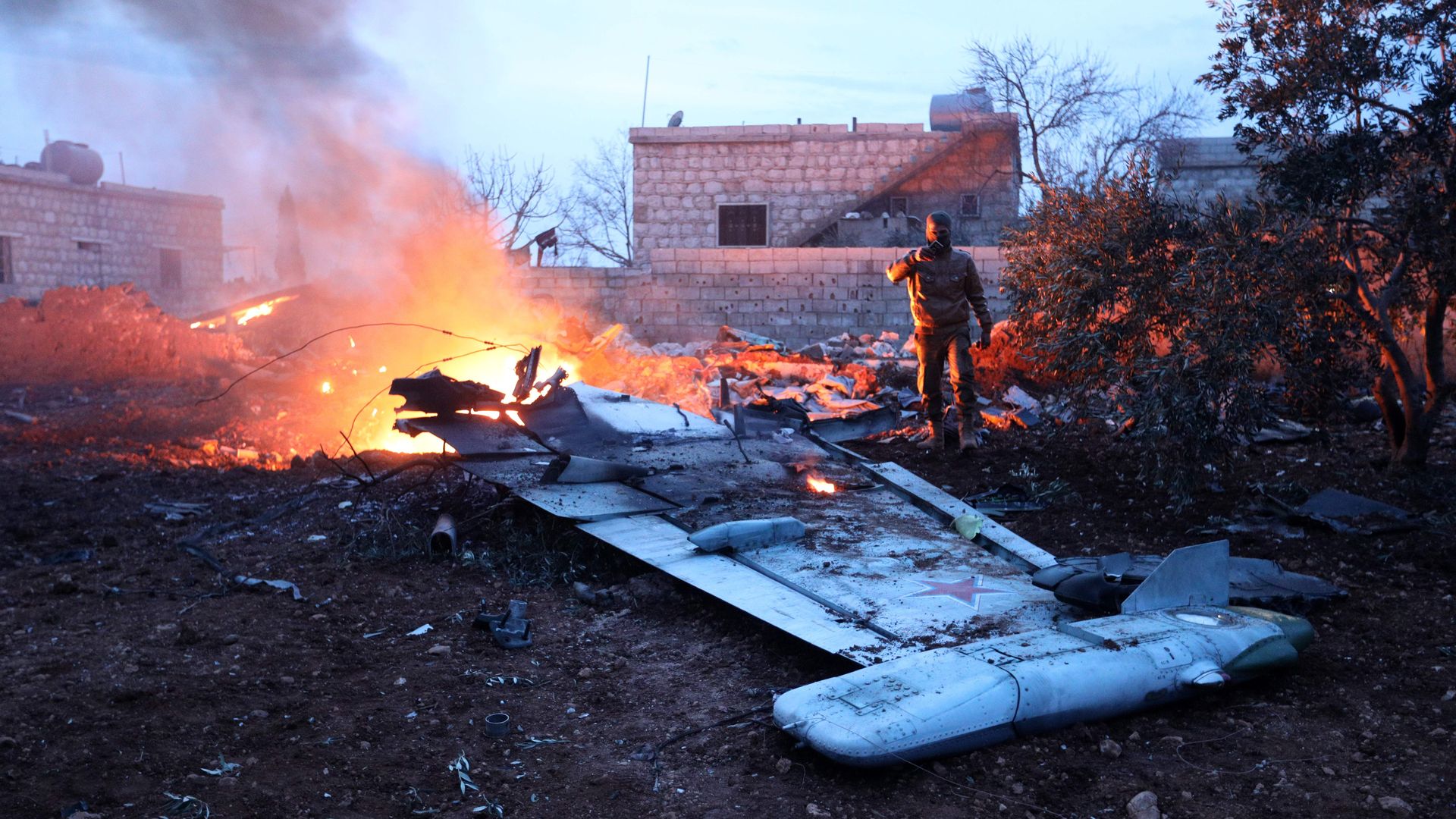Updated Feb 13, 2018 - World
Expert VoicesDowned warplane widens Russia-Turkey rift
Add Axios as your preferred source to
see more of our stories on Google.

The Russian Sukhoi-25 fighter jet downed in Syria's northwest province of Idlib on February 3, 2018. Photo: Omar Haj Kadour / AFP / Getty Images
